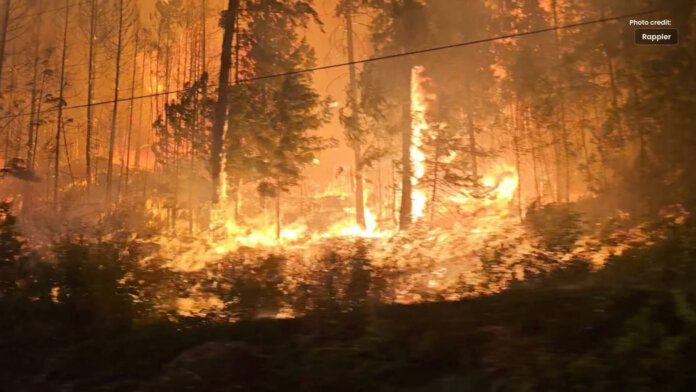Canada deploys military to address fast-spreading fires in Columbia.
In order to free up lodging for evacuees and firefighters, British Columbia declared a state of emergency, put a prohibition on non-essential travel, and asked drone operators and others taking pictures of the fires to avoid approaching rescue personnel.
After spending the previous four days battling “epic” fires, West Kelowna Fire Chief Jason Brolund expressed some optimism. He claimed that as a result, firefighters were able to put boots on the ground” and pour water on the fires that threatened the town of 150,000 residents.
Things appear to be improving. It’s a nice feeling to finally feel like we are moving ahead rather than backward, Brolund remarked. He did, though, foresee challenging days in the fight to put out the McDougall Creek fire.
In response to a request from the government of British Columbia, Trudeau stated in a tweet that the federal government will provide assistance from the Canadian military “to help with evacuations, staging,” and other logistical chores.
In Canada, forest fires are not unusual, but the spread of the blazes and the resulting disruptions highlight the severity of the country’s worst wildfire season to date, which some scientists have attributed to climate change.
Firefighters in Washington State, just across the border, were battling the Oregon Road Fire and the Gray Fire, which together had burned more than 20,000 acres of forest and damaged more than 100 buildings.
In order to save their lives and avoid firefighters from losing their lives saving them, Canadian government officials urged residents in areas under evacuation orders to leave right once. No official estimates of the overall number of demolished structures have been released.




